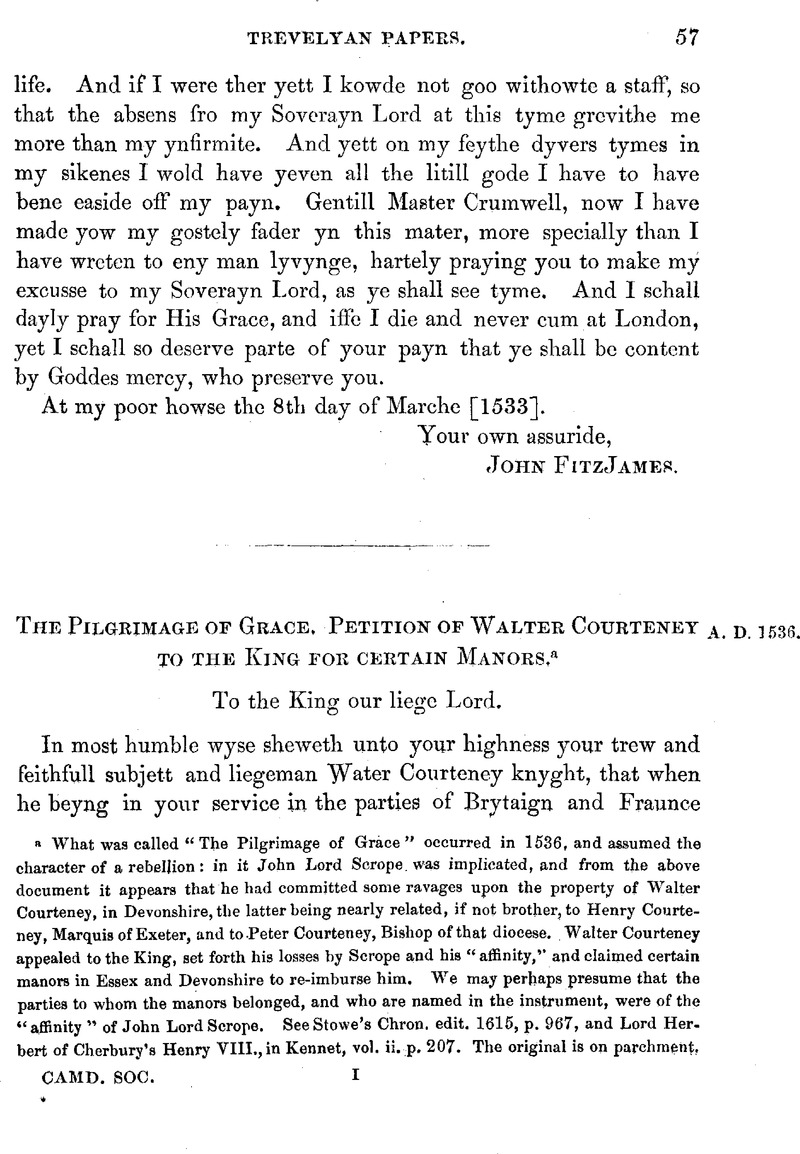No CrossRef data available.
Article contents
The Pilgrimage of Grace. Petition of Walter Courteney to the King for certain Manorsa
Published online by Cambridge University Press: 23 February 2010
Abstract

- Type
- Sir William Cavendish's Book
- Information
- Copyright
- Copyright © Royal Historical Society 1863
References
a What was called “The Pilgrimage of Grace” occurred in 1536, and assumed the character of a rebellion: in it John Lord Scrope. was implicated, and from the above document it appears that he had committed some ravages upon the property of Walter Courteney, in Devonshire, the latter being nearly related, if not brother, to Henry Courte-ney, Marquis of Exeter, and to-Peter Courteney, Bishop of that diocese. Walter Courteney appealed to the King, set forth his losses by Scrope and his “affinity,” and claimed certain manors in Essex and Devonshire to re-imburse him. We may perhaps presume that the parties to whom the manors belonged, and who are named in the instrument, were of the “affinity” of John Lord Scrope. See Stowe's Chron. edit. 1615, p. 967, and Lord Her. bert of Cherbury's Henry VIII., in Kennet, vol. ii.p. 207. The original is on parchment.




